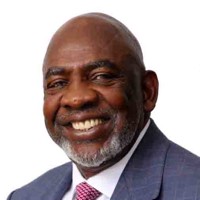Soldiers who carried out a coup in Mali earlier this year ousted Prime Minister Cheick Modibo Diarra on Tuesday, placing Diarra under house arrest and forcing his resignation. While the interim president has named a new prime minister, this abrupt change in leadership has drawn international attention to the military’s continuing grip on the country and called into question plans for an intervention to retake northern Mali from radical Islamists.
In an email interview, Paul Melly, an associate fellow in the Africa Program at Chatham House, told Trend Lines the ouster “undermines the constitutional legitimacy and political cover for intervention” and “sets back the process of securing a political green light” for retaking the north.
Despite fears that northern Mali has become a major stronghold for jihadi militias linked with al-Qaida, the military junta’s reassertion of power in the rest of the country means that the international community’s plans to assist the army in reclaiming the north are likely to be put on hold, Melly wrote. Neither the Economic Community of West African States, which had agreed to deploy troops to the country, nor Western governments “want to be viewed as coming to the aid of military putschists,” he explained.

